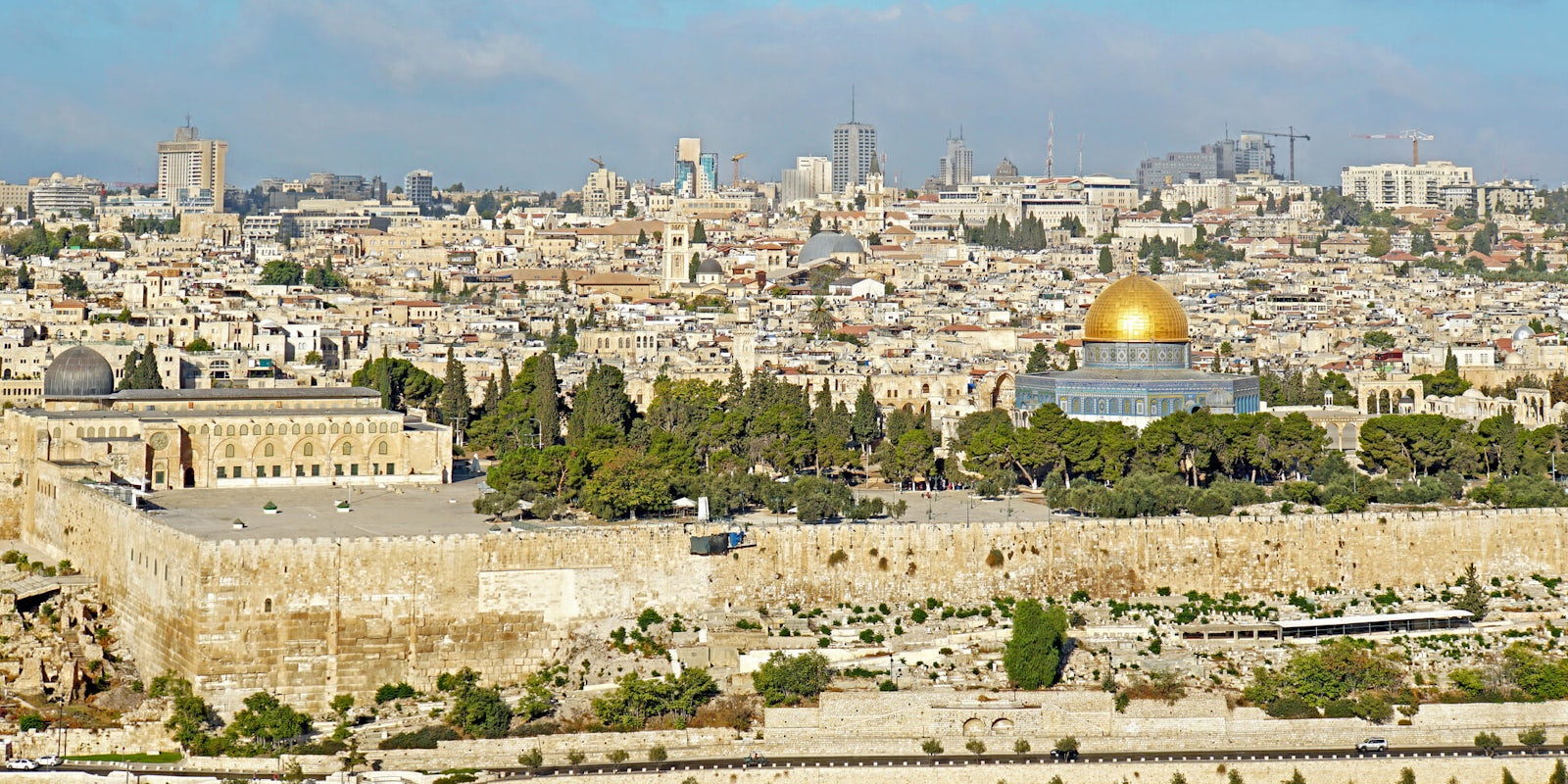Opinion
On Wednesday, Donald Trump became the first president in nearly seven decades to recognize Jerusalem as the capital of Israel rather than Tel Aviv. In a televised statement, Trump called the move the “right thing to do” and the recognition “of a historic and present reality.”
The United States plans to move its Israeli embassy to Jerusalem and will be the only country with its embassy in the city. Those unfamiliar with the conflict between Israelis and Palestinians may not realize the weight of this decision, but this seemingly simple diplomatic move could have far-reaching consequences in the region.
“Moving the U.S. embassy is a dangerous step that provokes the feelings of Muslims around the world.” King Salman of Saudi Arabia said on Saudi state TV yesterday. Jordan’s King Abdullah released a statement in which he stressed that the adoption of this resolution will have “serious implications for security and stability in the Middle East, and will undermine the efforts of the American administration to resume the peace process and fuel the feelings of Muslims and Christians.” Turkish President Tayyip Erdogan warned, “This could go as far as cutting our diplomatic relations with Israel. You cannot take such a step.” Additionally, leaders from across the E.U. condemned the decision.
Already, Palestinian and Islamic groups have planned three days of protests against the decision. Hamas says Trump’s decision opens “the gates of hell.” In fact, aside from Israel’s right-wing government, there are few forces in the world that view the move as a positive development. No other country keeps an embassy in Jerusalem. At the same time, the move is one that is somewhat bipartisan in the U.S. Some prominent Democrats like Sen. Chuck Schumer of New York back Trump’s decision.
Why is this such move viewed with such hostility? In recognizing Jerusalem as Israel’s capital, the U.S. is ostensibly conceding it has no investment in the so-called “two-state solution,” in which the Israelis and Palestinians live in two separate countries. Currently, Jerusalem is the seat of both Israeli and Palestinian governments, the Israelis in the west and Palestinians in the east. Palestinians view a bisected Jerusalem as an essential part of a two-state solution, and they see recognition of the city as the Israeli capital as control of Jerusalem being ceded completely to Israel.
This era of tension in Jerusalem extends back to the establishment of the Israeli state in 1948. At the end of the Israeli-Arab War of 1948, Jerusalem was split in two. Then, in 1967, Israel annexed East Jerusalem, and it’has remained in control of the city ever since. In 1980, Israeli law was amended to make this annexation explicit. The U.N. ruled that this maneuver was a violation of international law, but the circumstances have not changed. Since that time, conversation around a two-state solution has always included arguments over whether Jerusalem would be entirely under Israeli control or split with the Palestinian capital in the east. Trump’s declaration makes it clear that he does not see a long-term vision of a divided Jerusalem or a two-state solution.
Many nations and their leaders across the world consider Jerusalem to be occupied territory rightfully belonging to Palestinians. The international community also worries that a city with major holy sites of all three major monotheistic religions shouldn’t be solely controlled by one particular group.
Experts view Trump’s decision as so potentially dangerous that it might bring an end to the concept of a two-state solution altogether. A meaningful two-state solution would require concessions from both the Israelis and the Palestinians, and Trump’s move further tips the scales in favor of the Israelis. Middle East expert Derek Davidson writes in his blog:
“It’s hard to express just how malicious this decision is … Jerusalem, or the western half of it anyway, was inevitably going to be the recognized capital of Israel, but not until there was a peace deal in place with the Palestinians. Jerusalem’s status was one of the few bits of leverage the Palestinians had in negotiations, and…the Palestinians already didn’t have much leverage before Trump took this piece away from them.”
There are some who see a silver lining in Trump’s move because it lays the administration’s and the Israeli government’s cards on the table. Academic and writer Kumars Salehi foresaw this trajectory in a piece he wrote for Palestine in America late last year. Based on Trump’s choices of advisors on Israel, Salehi predicted moves like this were forthcoming. His cautiously optimistic view is that the pro-Israel maneuvers by Trump will set the stage not for a two-state solution, but for one state in which, some day, Israelis and Palestinians will have equal rights. He notes that 71 percent of Americans favor such an arrangement. In Salehi’s view, a single state solution could ultimately lead to a “tipping point” for American activists and “force Israel to respect Palestinians’ human rights.”
While Trump’s decision is likely to accelerate tensions in the region in the short term, Salehi and other Palestinian activists feel that as the administration’s allegiances are out there, the stage is set for advocacy on behalf of the Palestinian people.
Regardless of whether Trump’s decision ultimately has positive consequences, tensions are sure to be accelerated at home and abroad.

